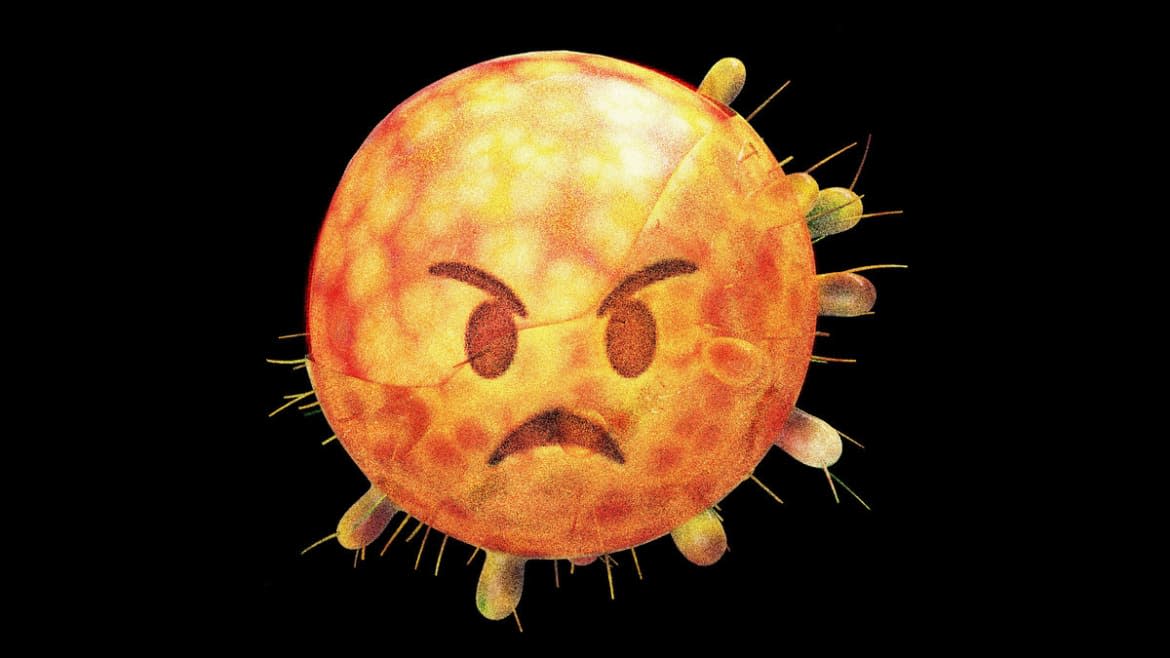New COVID Variants Are Escaping the Immune System. Here’s What That Means.

BA.5, BQ.1.1, and XBB? It’s no wonder people are struggling to keep all the circulating variants of COVID-19 straight right now. Whether you want to call them “alphabet soup,” “Scrabble,” or “Kraken,” we’ve been reminded time and again that it’s not the name of the subvariant that matters, but rather the way it interacts with our immune systems. And as we enter into our fourth year with COVID-19, scientists are most concerned with how well prior infections, vaccinations, and boosters can protect us against emerging variants of the virus.
The answers are starting to roll in—and they’re not looking great for us. In a letter published on Jan. 18 in The New England Journal of Medicine, researchers from Beth Israel Deaconess Medical Center and Los Alamos National Laboratory detail the nasty abilities of variants BQ.1.1 and XBB.1 to escape incapacitation from COVID-specific antibodies. This is cause for concern because as the authors wrote, these variants “may reduce the efficacy of current mRNA vaccines.”
Before Aug. 31 in the U.S., available COVID-19 boosters were monovalent, meaning they contained viral genetic material from one strain of the virus. The updated boosters are bivalent and were created with genetic material from the original COVID-19 strain as well as Omicron variant strains with the hope of offering better protection against new and emerging variants.
COVID’s New Year’s Resolution Is to Infect Us All Again (and Again)
Unfortunately, these early data seem to show that two of the newest variants can dodge even the bivalent boosters. In their study, the researchers took serum samples from 16 people who received a monovalent booster in 2021, 15 who received a monovalent booster in 2022, and 18 people who received a bivalent booster in September 2022. In all three cohorts, the concentration of neutralizing antibodies—which immobilize copies of the virus and prevent them from infecting cells—fighting the original Wuhan strain shot up after participants received boosters, from the hundreds or thousands to the tens of thousands.
But their immune response against some of the newest viral variants was severely diminished, even compared to ones that came directly before. The authors found that neutralizing antibody concentrations to variants BQ.1.1 and XBB.1 were between 53 and 232 times lower than those to the original strain of COVID-19, depending on the booster received. These variants were even better than a recent Omicron variant at evading the immune system and escaping neutralizing antibodies.
China Records 60,000 COVID Deaths in Last Month After Ending ‘Zero-COVID’ Policy
On Jan. 11, the World Health Organization released a risk assessment about XBB.1.5, writing that BQ and XBB variants are “the most antibody-resistant variants to date” but cautioning that “[t]here is currently no data on real world vaccine effectiveness against severe disease or death” for these variants.
It’s clear that these variants aren’t good news, but future research is needed to suss out just how bad they will turn out to be. This study is one early indication that as sick as we might be of the COVID-19 pandemic, we aren’t out of the woods just yet.
Got a tip? Send it to The Daily Beast here
Get the Daily Beast's biggest scoops and scandals delivered right to your inbox. Sign up now.
Stay informed and gain unlimited access to the Daily Beast's unmatched reporting. Subscribe now.

